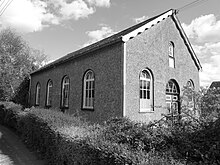Methodism, also called the Methodist movement, is a Protestant Christian tradition whose origins, doctrine and practice derive from the life and teachings of John Wesley. George Whitefield and John's brother Charles Wesley were also significant early leaders in the movement. They were named Methodists for "the methodical way in which they carried out their Christian faith". Calling it "the grand depositum" of the Methodist faith, Wesley specifically taught that the propagation of the doctrine of entire sanctification was the reason that God raised up the Methodists in the world. Methodism originated as a revival movement within Anglicanism originating out of the Church of England in the 18th century and became a separate denomination after Wesley's death. The movement spread throughout the British Empire, the United States and beyond because of vigorous missionary work, and today has about 80 million adherents worldwide.
The Holiness movement is a Christian movement that emerged chiefly within 19th-century Methodism, and to a lesser extent influenced other traditions such as Quakerism, Anabaptism, and Restorationism. The movement is historically distinguished by its emphasis on the doctrine of a second work of grace, which is called entire sanctification or Christian perfection. Churches aligned with the holiness movement additionally teach that the Christian life should be free of sin. For the Holiness movement, "the term 'perfection' signifies completeness of Christian character; its freedom from all sin, and possession of all the graces of the Spirit, complete in kind." A number of evangelical Christian denominations, parachurch organizations, and movements emphasize those beliefs as central doctrine.
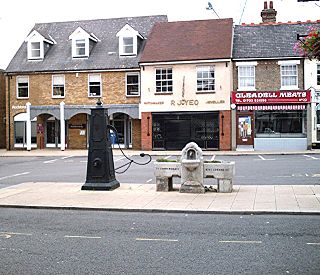
Rochford is a town and civil parish in the Rochford District in Essex, England, 3 miles (4.8 km) north of Southend-on-Sea, 43 miles (69 km) from London and 21 miles (34 km) from Chelmsford. At the 2011 census, the civil parish had a population of 8,471.

Calvary Chapel is an international association of charismatic evangelical churches, with origins in Pentecostalism. It maintains a number of radio stations around the world and operates many local Calvary Chapel Bible College programs.

Rayleigh is a market town and civil parish in the Rochford District in Essex, England; it is located between Chelmsford and Southend-on-Sea, 32 miles (51 km) east of central London. It had a population of 32,150 at the census in 2011.

Rochford and Southend East is a constituency represented in the House of Commons of the UK Parliament since 2005 by Sir James Duddridge, a Conservative.
Outward holiness, or external holiness, is a Wesleyan–Arminian doctrine emphasizing modest dress and sober speech. It is a testimony of a Christian believer's regeneration, done in obedience to God. The doctrine is prevalent among denominations emerging during the revival movements, including the Methodists, as well as Pentecostals. It is taken from 1 Peter 1:15: "He which hath called you is Holy, so be ye holy in all manner of conversation."

The Society of Dependants were a Christian sect of Protestant dissenters founded by John Sirgood in the mid-nineteenth century. Their stronghold was in West Sussex and Surrey where they formed co-operatives in some villages. They were widely known as "Cokelers", a nickname of uncertain derivation but which was used from an early date.
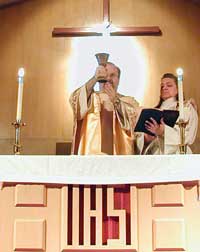
An elder, in many Methodist churches, is an ordained minister that has the responsibilities to preach and teach, preside at the celebration of the sacraments, administer the church through pastoral guidance, and lead the congregations under their care in service ministry to the world.
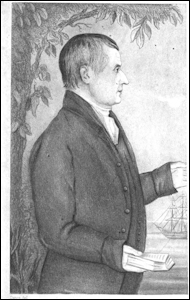
William O'Bryan was a Methodist preacher and founder of the Bible Christian movement.
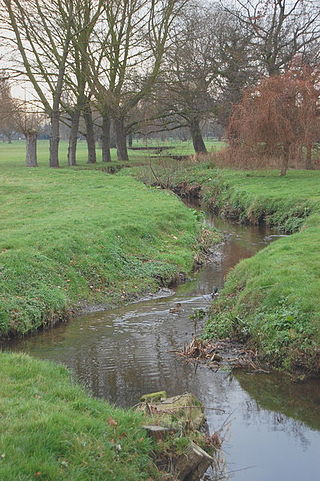
The River Roach is a river that flows entirely through the English county of Essex. It is one of four main streams that originate in the Rayleigh Hills to the west, and flow east. They then flow towards the centre of the Rochford Basin, a circular feature which may have been caused by an asteroid impact in the Late Oligocene or Early Miocene periods. To the east of Rochford, the river becomes tidal, and is governed by the Crouch Harbour Authority. It joins the River Crouch between Wallasea Island and Foulness Island. To the west of Rochford, there is some doubt as to which of the four streams is officially the Roach.

John Sirgood (1821–1885) was a Christian fundamentalist lay preacher, shoemaker and draper.

Robert Aitken (1800–1873) was a Scottish popular preacher who formed 'The Christian Society', with his following primarily drawn from Methodist and Anglican believers, promoting a mix of evangelism and tractarianism.

The Bastion of Truth Reformed Churches in the Philippines is a denomination of Christian churches all located in Southern Luzon, the Philippines.
The Bible Methodist Connection of Churches is a Methodist denomination within the conservative holiness movement. The connection is divided into four regional conferences: the Southern Conference, led by Rev. John Parker; the Southwest Conference, led by Rev. G. Clair Sams; the Heartland Conference, led by Rev. Chris Cravens; and the Great Lakes Conference, led by Rev. David Ward.

Titus 2 is the second chapter of the Epistle to Titus in the New Testament of the Christian Bible. The letter is traditionally attributed to Paul the Apostle, sent from Nicopolis of Macedonia, addressed to Titus in Crete. Some scholars argue that it is the work of an anonymous follower, written after Paul's death in the first century AD. This chapter describes the qualities of members of the community and doctrinal statements regarding the death of Christ in relation to the removal of sin.
Nonconformity to the world, also called separation from the world, is a Christian doctrine based on Romans 12:2, 2 Corinthians 6:17 and other verses of the New Testament that became important among different Protestant groups, especially among Wesleyans and Anabaptists. The corresponding German word used by Anabaptists is Absonderung. Nonconformity is primarily expressed through the practices of plain dress and simple living.
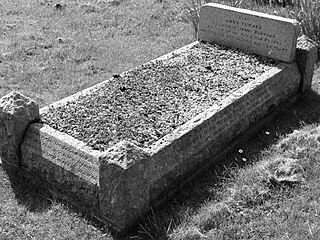
James Banyard was a Wesleyan Local Preacher, founder of The Peculiar People, farmer and shoemaker.

William Bridges (1802–1874) was a Methodist local preacher, hat block maker and founder of the Plumstead Peculiar People.

